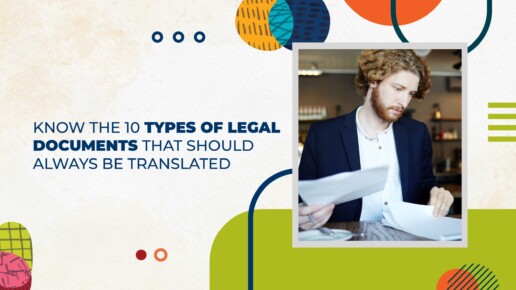Know the 10 types of Legal Documents that should always be Translated
Introduction
In our interconnected world, the translation of legal documents is more crucial than ever. Whether dealing with international business agreements, navigating immigration processes, or protecting intellectual property, accurate translations ensure legal clarity and compliance. Metaphrasis offers expert translation services to meet these needs. This article explores the ten types of legal documents that should always be translated to avoid misunderstandings and legal issues.
1. Contracts
Contracts are legally binding agreements between parties, covering various topics from employment terms to sales agreements. Accurate translation of contracts is crucial to ensure all parties fully understand their rights and obligations. Misinterpretations can lead to disputes and legal complications, making precise translations essential for maintaining trust and legal integrity.
2. Court Documents
Court documents, including judgments, summons, and evidence, play a vital role in legal proceedings. Accurate translation of these documents is essential to preserve the judicial process’s integrity. Misinterpretations can alter a case’s outcome, potentially leading to unjust decisions. Therefore, legal professionals must ensure meticulous translation of court documents.
3. Immigration Documents
Immigration processes involve complex documentation, such as visas, residency applications, and asylum requests. Accurate translation of these documents is crucial as errors can lead to delays, rejections, or deportation. Proper translations help immigration officials understand an applicant’s history and intent, facilitating a smoother process.
4. Business Agreements
Business agreements encompass documents like partnership agreements, nondisclosure agreements, and merger contracts. For businesses operating globally, translating these agreements is vital. Accurate translations ensure that all stakeholders, regardless of their native language, clearly understand the terms, reducing disputes and fostering trust.
5. Patent Documents
Patents protect inventions and intellectual property rights. Translating patent documents accurately is essential to safeguard these rights across different jurisdictions. A poorly translated patent can lead to intellectual property theft or legal challenges, undermining the inventor’s protections.
6. Birth Certificates
Birth certificates are fundamental legal documents used for identification, obtaining passports, and other official purposes. Accurate translation of birth certificates ensures that personal information is correctly represented, which is crucial for legal and bureaucratic processes.
7. Marriage Certificates
Marriage certificates are used in various legal contexts, such as changing a name, filing taxes, and applying for spousal visas. Inaccurate translations can create legal complications and misunderstandings. Ensuring precise translation of marriage certificates is essential for legal recognition and the smooth handling of related matters.
8. Academic Transcripts and Diplomas
For individuals seeking education or employment abroad, translating academic transcripts and diplomas is often required. Accurate translations help educational institutions and employers understand an individual’s qualifications and academic achievements, which is essential for admission and hiring decisions.
9. Financial Documents
Financial documents, including bank statements, audit reports, and investment agreements, are crucial in international finance. Accurate translations ensure that financial data is correctly interpreted, which is vital for compliance, reporting, and decision-making processes in global markets.
10. Medical Records
Medical records are critical for patient care, especially when receiving treatment abroad. Accurate translation of medical records ensures that healthcare providers understand a patient’s medical history, allergies, and treatments. This information is crucial for providing appropriate care and avoiding medical errors.
Conclusion
Translating legal documents accurately is essential in our globalized world. From contracts to medical records, ensuring precise translations helps prevent misunderstandings, legal disputes, and other complications. By prioritizing accurate translations, individuals and businesses can navigate international interactions with confidence and clarity.

